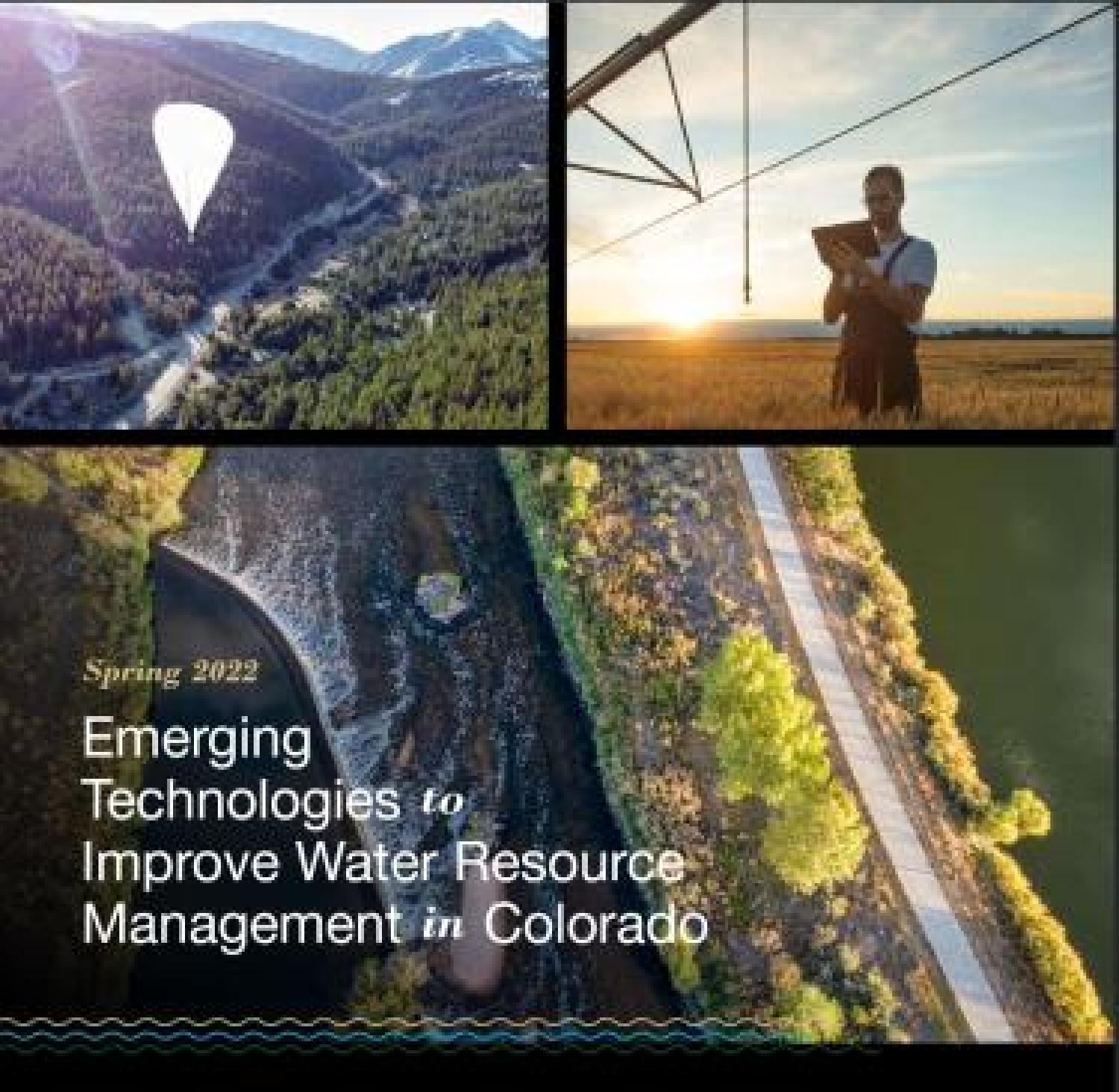Technologies & Methods to Improve Water Resource Management in CO
Emerging Technologies for Water Management in Colorado
This report is published by the University of Colorado Boulder Mortenson Center in Global Engineering & Resilience, and the Colorado State University Colorado Water Center in response to State of Colorado House Bill 21-1268 “Emerging technologies for water management study”. This report was prepared and edited by Kat Demaree, Melanie Holland and Evan Thomas of the University of Colorado Boulder and Amy Kremen of Colorado State University. Co-Authors include: Rep. Brianna Titone, Sen. Cleave Simpson, Kate Ryan, Rana Sen, SJ Maxted, Carley Weted, K. Kelly Close, Alison Witheridge, Andrew Antonio, Ben Livneh, Stephanie Tatge, Alex Johnson, Chris Thomas, David Primozich, Elliot Hohn, Scott Campbell, Jeffrey Deems, Taylor Winchell, Stephanie Kampf, Abby Eurich McNamara, John Hammond, Gigi Richard, Joel Sholtes. This report was funded by the State of Colorado, the Moore Foundation and the Irrigation Innovation Consortium.
Climate Financing for Water Security
One outcome of this report was increased attention to leveraging climate finance toward water security. The University of Colorado Boulder Mortenson Center in Global Engineering and Resilience, with partners, are currently developing the first-ever demonstration of carbon credits earned from green infrastructure replacing gray infrastructure for water treatment.
Water insecurity is increasing globally as one of the first perceivable effects of climate change. While water management is typically a local challenge, climate finance mechanisms offer the potential to switch climate-damaging capital toward climate reparative water infrastructure and create a sustainable, performance-based funding stream to incentivize safe water services globally.
Emerging momentum toward climate action includes dedicated climate financing mechanisms that may be leveraged toward water security. Climate finance mechanisms offer the potential to switch climate-damaging capital toward climate reparative water infrastructure and create a sustainable, performance-based funding stream to incentivize safe water services.
Green infrastructure, including tree planting, soil erosion control, wildfire mitigation and livestock exclusion, can improve water quality and reduce the need for concrete and steel gray infrastructure. By avoiding the construction and operation of energy intensive, carbon emitting water and wastewater plants, we can generate carbon credit revenue to pay for watershed protection.
What's In the Report?
- Highlights on some of the most pressing issues facing Colorado water managers in an effort to focus dialogue, funding, and legislative activity around advancements supporting water conservation
- An exploration of technologies integrating remote sensing, advanced aerial imaging, and blockchain as potential solutions to water management challenges
- Details on the findings of a statewide survey, illustrating the importance of gathering qualitative insights from water managers and decision-makers

Research Themes:
Interviews with statewide water experts resulted in these themes for the survey:
- Monitoring gaps in Colorado water management
- Challenges for Colorado water managers across basins & sectors
- Perceptions of technology use and barriers to adoption across Colorado

